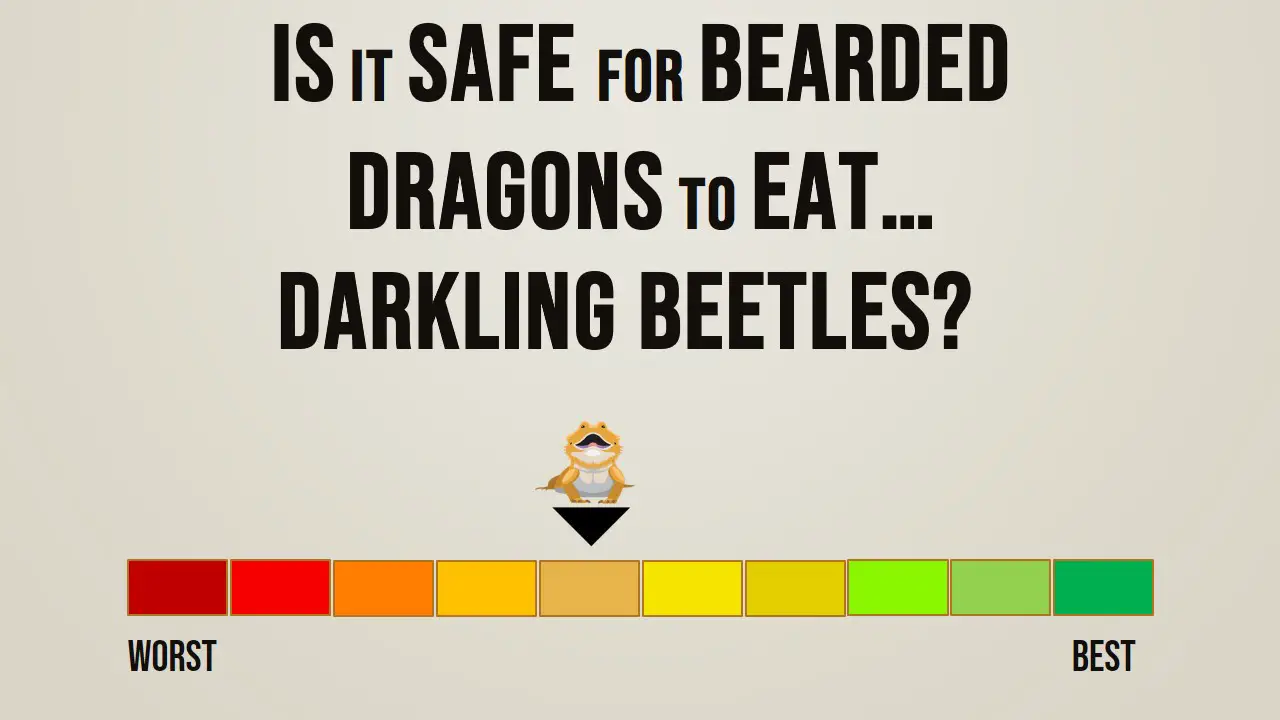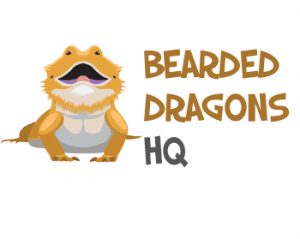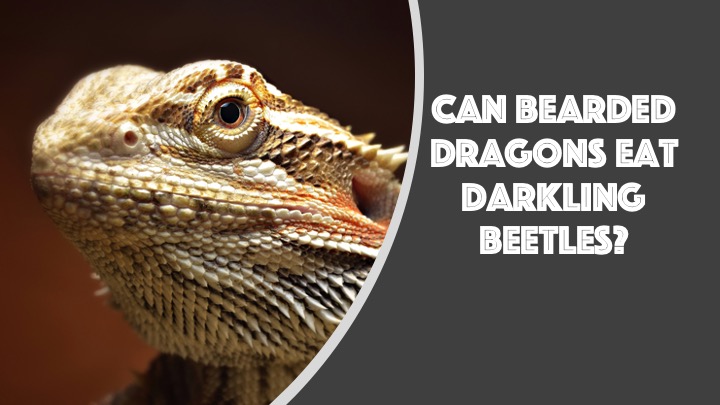Bearded dragons are omnivores, which means they eat meat and veggies. There are tons of insects that make good food for bearded dragons, but darkling beetles are not one of them. Let’s get started!
Darkling beetles can technically be eaten by bearded dragons but they really shouldn’t. They provide no known nutritional value to a dragon’s diet. Darkling beetles have a very hard exoskeleton which can wreak havoc on your bearded dragon’s intestines when they try to digest the beetle. The hard exoskeleton also makes them very tough for older beardies because their teeth aren’t as sharp as they used to be. Darkling beetles are not the best food for baby beardies either because they will choke on the beetle or get their guts punctured. If you insist on feeding your bearded dragon darkling beetles, make sure your beardie is strong, active and in good health. And still, then, you should limit their access to these types of beetles. Check out the insects bearded dragons can eat

What Are Darkling Beetles?
A darkling beetle is a common name for any of the over 500 species in the superfamily Tenebrionoidea. The larvae of darkling beetles are also known as mealworms, which isn’t actually its name. In general, they look like beetles but are actually classified as a type of insect called ‘darkling’. They have been around for thousands of years and were an important food source for early humans.
In nature, they can be found under rocks or logs and also burrow into the soil to feed on decaying matter. They can even be found living among termite colonies because they share many similarities with them and often help each other out. They’re usually black or brown but can come in different colors depending on their diet and environment.
Insects
- Can Bearded Dragons Eat Moths
- Can Bearded Dragons Eat Nightcrawlers
- Can Bearded Dragons Eat Red Worms
Are Darkling Beetles Good For Bearded Dragons?
There are a variety of different insects that bearded dragons can eat, and it can be a bit overwhelming to know which ones are going to provide the most benefits. However, there has been some debate over whether darkling beetles should be considered safe for your bearded dragon.
Bearded Dragons have an insatiable appetite when it comes to insects. They love to eat crickets, mealworms, super worms and even earthworms. However, when it comes to the darkling beetle… you might want to think twice before feeding your bearded dragons these bugs.
Research has shown that these insects usually come from farms where food is treated with pesticides and other harmful chemicals. The result? Beardies cannot distinguish between the good bugs from the bad bugs and will end up consuming the darkling beetles that one would assume are full of nutrients. Sadly, they’re actually packed with pesticides and contaminants that can harm your beardie’s overall health.
Can Any Reptiles Eat Darkling Beetles?
Yes, Leopard Geckos are able to eat darkling beetles. Leopard Geckos will eat just about any insect or invertebrate that they can get into their mouths. In the wild, Leopard Geckos feed mainly on lizards and insects.
Darkling Beetles can be found in pet stores and usually come in small containers. Some people actually use these bugs as feeders for larger reptiles such as large snakes, monitor lizards and sometimes crocodiles.
In conclusion, unfortunately, darkling beetles are not the best food for bearded dragons no matter how you slice it. Their hard exoskeleton makes digesting these insects very difficult for them and can lead to impaction that is often fatal. The corners of their mouths get caught on the sharp edges of the beetle’s shell while trying to bite its head off- something many pet owners don’t understand until it’s too late!
Another reason why you should think twice before feeding your reptile darkling beetles is because they usually come from farms where chemicals are used in large quantities. Unfortunately, insect farms aren’t regulated so even if what they’re telling you is true… there’s still a chance that pesticides are being used.

